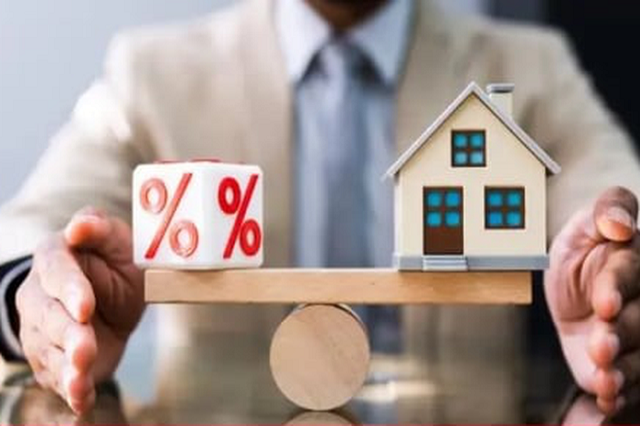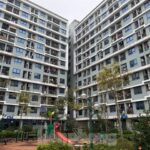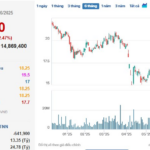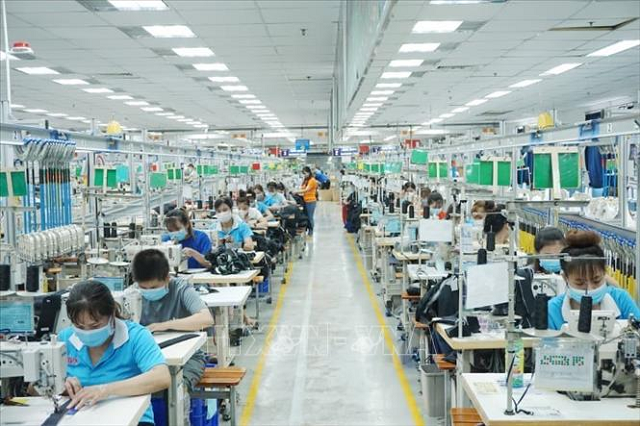“Commercial Housing Loans for Young People: Vietnam’s Banking Sector Steps Up”
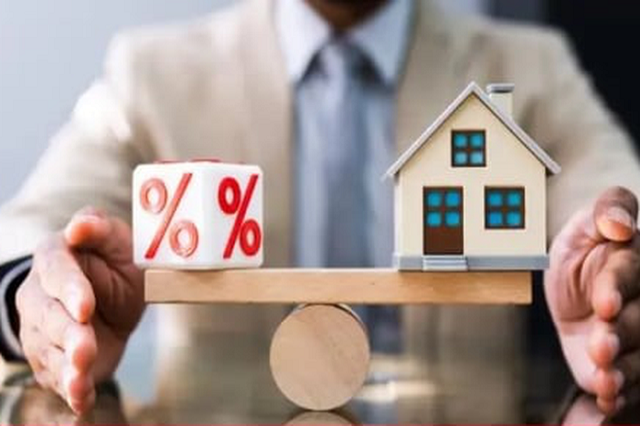
The Vietnamese government is taking proactive steps to address the housing needs of its younger population. On June 9, 2025, the Office of the Government issued Notification 294/TB-VPCP, directing the State Bank of Vietnam (SBV) to instruct commercial banks to focus on lending and disbursement for commercial housing projects with suitable prices. Furthermore, the SBV is exploring specialized credit packages for young people seeking to purchase homes.
The SBV is already collaborating with the Ministry of Construction to actively resolve issues related to the VND 145,000 billion credit package, allocating a certain amount of capital to meet the needs of young people under 35 years old who wish to buy or rent-to-own properties.
Commercial banks are also actively deploying preferential credit packages to support young people in purchasing homes, ranging from social housing to commercial properties and apartments.
At state-owned banks, interest rates typically range from 5.2% to 5.6% per annum. Agribank offers a fixed interest rate of 5.5% for the first three years, with a loan limit of 75% to 100%, a 60-month grace period, and a maximum term of 40 years. BIDV provides a similar package with a 5.5% interest rate fixed for the initial three years, a loan value of 70% to 100%, a five-year grace period, and a maximum term of four decades.
Vietcombank introduces a package for customers under 35 with a 5.2% interest rate, fixed for 70% of the property value, a five-year grace period, and a 40-year term. VietinBank also caters to customers aged 20 to 35 with interest rates starting at 5.6%, fixed for the duration, offering 100% loans, a five-year grace period, and a maximum term of four decades.
Private banks, such as MSB, ACB, HDBank, VPBank, VIB, Sacombank, OCB, Eximbank, and TPBank, offer home loan packages for young people aged 22 to 35, with initial interest rates ranging from 4.5% to 5.8%.
The fixed-rate period typically lasts from three months to the first five years, after which a floating rate applies. Loan terms can extend up to 40 years, with a maximum grace period of five to seven years, and loan values can reach up to 80% of the property value.
## Increasing Affordable Housing Supply
Dr. Nguyen Tri Hieu, a finance and banking expert, commends the government’s initiative to provide specialized credit packages to support young people in acquiring suitable commercial or social housing. However, he emphasizes that without concrete and financially realistic programs, the effectiveness of these measures will be limited.
The current challenges in the real estate market, according to Dr. Hieu, are twofold: excessively high property prices and relatively high-interest rates, even for so-called preferential packages like the VND 120,000 billion and VND 145,000 billion packages. To truly enable young people to buy homes, loan packages must be designed to match their income and repayment capabilities.
A common global standard suggests that monthly mortgage payments should ideally not exceed 50% of an individual’s income. However, given the relatively low and unstable income of Vietnam’s youth, adhering to this standard is challenging. At the same time, property prices continue to rise, making homeownership increasingly out of reach for young people.
To bring about substantive change, Dr. Hieu proposes two sets of solutions. Firstly, increase the supply of housing, especially for low- and middle-income earners—the demographic group that comprises a large portion of the youth population. The government should expedite legal processes, streamline approvals, and encourage businesses to invest in this segment.
Secondly, he advocates for genuinely preferential loan packages, suggesting that the government issue low-interest bonds and then provide cheap capital to commercial banks. This would enable banks to offer home loans with interest rates of approximately 5% per annum and terms of up to 30 years. Combining this with an abundant supply and regulated property prices would enhance young people’s access to homeownership.
Sharing this sentiment is Mr. Nguyen Quang Huy, CEO of the Finance and Banking Faculty at Nguyen Trai University. He believes that the government’s approach is shifting from a “rescue” mindset to one of creating a sustainable foundation. Commercial housing at appropriate prices meets the actual demand and long-term needs of the majority of the population, and it is not just a real estate issue but also a pillar of social stability and urban development strategies.
This policy also lays the groundwork for greater transparency in credit flows, a healthier asset structure, and the avoidance of systemic risks associated with speculation, high financial leverage, and inappropriate products.
However, Mr. Huy emphasizes the need to ensure that policies truly benefit the people and have a tangible impact. He identifies several existing bottlenecks and suggests building a sustainable improvement roadmap.
Firstly, there is a shortage of suitable housing supply, with most projects catering to the mid- to high-end market and prices exceeding the affordability of most citizens. Commercial housing projects with reasonable prices are scarce and unevenly distributed between urban and suburban areas. Additionally, the approval and planning processes for this type of project are time-consuming, and land-related issues and legal complexities remain significant obstacles.
To address this, Mr. Huy proposes special mechanisms and preferential policies regarding land, procedures, and taxes for enterprises investing in commercial housing development with reasonable prices. He also encourages public-private partnerships in constructing urban areas for middle-income earners.
Secondly, regarding loan conditions and disbursement mechanisms, many people, especially the youth, self-employed individuals, and small business owners, struggle to prove stable income or provide collateral. Some loan policies also have stringent conditions regarding loan-to-value ratios and short grace periods, which do not align with the long-term repayment capabilities of average-income earners.
To overcome these challenges, banks should simplify procedures for proving income, utilize financial technology (fintech) for more effective credit risk assessment, and ultimately broaden access to loans for those with a genuine need for housing.
## Real Demand to Lead the Real Estate Market Recovery
Mr. Huy foresees a new, slower but steadier cycle for the real estate market, with affordable housing leading the way. He bases this prediction on several optimistic factors: buyers are returning to the market as prices and interest rates adjust; macroeconomic policies are focusing more on housing needs rather than speculative profits; and credit flows will selectively favor sustainable segments, creating positive spillover effects. However, he cautions that this recovery will not be uniform and will heavily depend on policies, market conditions, and the adaptability of stakeholders.
Dr. Hieu offers a more cautious perspective, noting that the real estate market remains subdued even in June, with no signs of improvement. He attributes this partly to macroeconomic factors, both domestically and globally, particularly the pending outcome of trade negotiations regarding US tariffs. An unfavorable resolution could lead to foreign investors withdrawing from Vietnam, impacting industrial real estate and creating ripple effects on other segments.
However, Dr. Hieu also sees a silver lining: if the market undergoes significant corrections due to external factors, it could present an opportunity for young people, especially if accompanied by suitable loan programs. While the second half of the year may bring significant fluctuations, a definitive prediction about a clear recovery remains elusive.
[Cát Lam]
– 14:06 23/06/2025
“State-owned Enterprises Should Focus on Affordable Housing”
“Experts advocate for opening up the real estate market to state-owned enterprises, believing it will benefit the industry. They suggest that these enterprises focus on providing affordable housing to low-income earners in major cities, thus improving their living standards and overall well-being.”
“A Dream Come True for Workers in Bac Giang: Purchase a Social Housing Unit for Just 100 Million VND and Finance the Rest Through a 24-Year Bank Loan, Repaying Only 1 Million VND/Month”
With an incredibly affordable payment plan, social housing in Bac Giang is now more accessible than ever. Prospective homeowners only need to put down a mere 100 million VND as a down payment for a 33 sq. m apartment. The remaining cost can be financed through a bank loan, with repayments as low as 1 million VND per month over a 24-year period. This presents a fantastic opportunity for workers to achieve their dream of homeownership.
“DKRA Realty Forges Strategic Alliance for The 826 EC Township Development”
On June 4th, a momentous partnership agreement was signed between Hai Thanh, the renowned real estate developer, and DKRA Realty, the esteemed total marketing and distribution agency, along with strategic distribution partners. This collaboration marks the commencement of an exciting business venture for the highly anticipated project, The 826 EC, in Thu Duc City, Ho Chi Minh City.


























